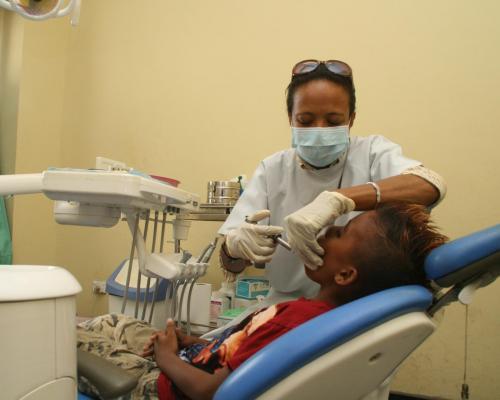
Message from WHO Regional Director for Africa, Dr Matshidiso Moeti
Oral health is the foundation of our life. It enables us to perform essential functions and impacts our self-confidence, well-being, and ability to socialize and work without pain, discomfort, and embarrassment from early life to old age. Yet oral diseases, such as dental caries, gum diseases, and tooth loss, are the most widespread globally and regionally when most oral diseases are preventable. In 2019, oral diseases affected around 43.7 % of the population in the WHO African Region.
The burden of oral diseases has high social, economic, and health systems consequences and reflects significant inequalities. For example, noma, a disease, destroys the mouths and faces of mostly young children. If left untreated, it is fatal in 90% of cases. Noma is primarily found in Sub-Saharan Africa and is a marker of extreme poverty.
Based on the regional summary of the WHO Global Oral Health Status Report in 2022 among WHO’s six regions, our region has experienced the largest increase in the number of major oral disease cases in the previous 30 years. However, there is fundamental under-investment in oral health. Half of our countries do not have oral health policies. More than 70% of our countries spent less than US$ 1 per person per year on treatment costs for oral health care in 2019. We have also faced a chronic lack of an oral health workforce. For example, dentists per 10,000 population in the region equates to one-tenth of the global ratio.
To address these challenges, countries, WHO, and partners should unite, follow, and implement the Regional and Global strategies on oral health, which guide countries to address oral diseases, as part of non-communicable diseases (NCDs) prevention and control towards universal health coverage (UHC). Oral diseases can be prevented by addressing common risk factors, such as the use of tobacco and alcohol, and an unhealthy diet with other NCDs, such as diabetes and cancers. Moreover, people should have a right to access essential, quality oral health care that responds to their needs without financial difficulty.
At WHO, we have supported countries to develop and implement oral health strategies. In 2022, we helped Cabo Verde, Kenya, Malawi, Mauritius, and Senegal to launch and implement national oral health policies. We did the same with Algeria, Botswana, and Lesotho. To address the scarce oral health workforce in response to the population’s needs, we are developing an online training course, in partnership with Harvard University, for community health workers to facilitate task sharing of oral health interventions among oral and other health professionals.
We have supported eleven countries to develop, implement and monitor an integrated national noma control programme, funded by the German nongovernmental organization, Hilfsaktion Noma e.V. In July 2022, we successfully launched the online training course for noma towards primary care workers. Around 3,600 people registered for this course to learn about this severe disease, have their capacity built on prevention and control of noma, and hopefully use that knowledge and skill on early detection and treatment at the primary care level.
Some progress has been made in collaboration with countries and partners, as could be seen from the preceding. However, progress could be faster to achieve the global vision of UHC for oral health for all by 2030.
By leveraging existing strategic guidance as well as advocacy opportunities, I urge Ministries of Health to:
- Prioritize oral health as part of NCDs and UHC agendas and increase political and financial commitment
- Make a paradigm shift from treatment-oriented oral health care into more prevention and promotion approaches to address oral health inequality
- Integrate oral health into the health systems, such as the integration of oral health care into the UHC benefit package, task sharing of oral health care with other health professionals, and collecting oral health information through the existing surveillance system
- Mobilize, involve, and empower communities to enable people to increase control over and improve their oral and general health
Furthermore, NGOs, civil society, and the private sector should advocate and support government efforts in implementing the population’s needs-based oral health strategies. I encourage all individuals and communities to adopt healthy lifestyles and maintain a balanced diet, low in free sugar and high in fruit and vegetables. Favour water as the main drink. Avoid using all forms of tobacco; avoid excessive harmful consumption of alcohol; and maintain good oral hygiene by brushing teeth with fluoride toothpaste twice a day. On this World Oral Health Day 2023, let us unite against oral diseases and take action to make the population enjoy better oral health, better health, and better quality of life
Learn more:
WHO Regional Office for Africa (2016). Regional oral health strategy 2016–2025: addressing oral diseases as part of noncommunicable diseases: report of the Secretariat (AFR/RC66/5). https://apps.who.int/iris/handle/10665/250994
WHO (2022). Global oral health status report: towards universal health coverage for oral health by 2030. https://apps.who.int/iris/handle/10665/364538
WHO (2023). Draft Global Oral Health Action Plan. https://www.who.int/publications/m/item/draft-global-oral-health-action-plan-%282023-2030%29

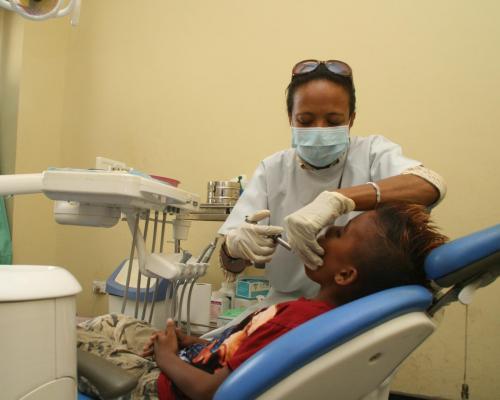
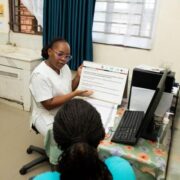
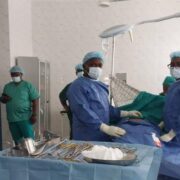


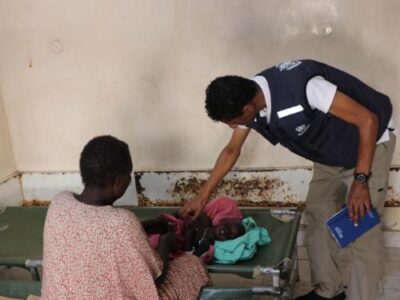
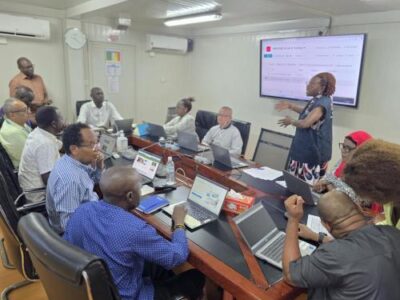

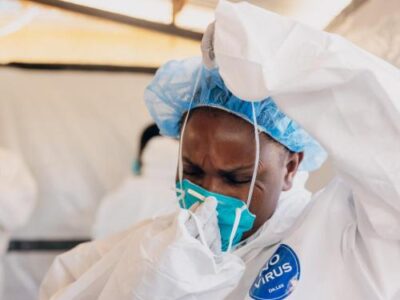

Comments